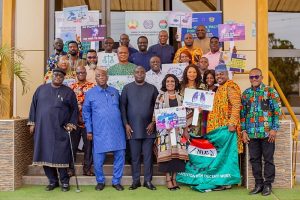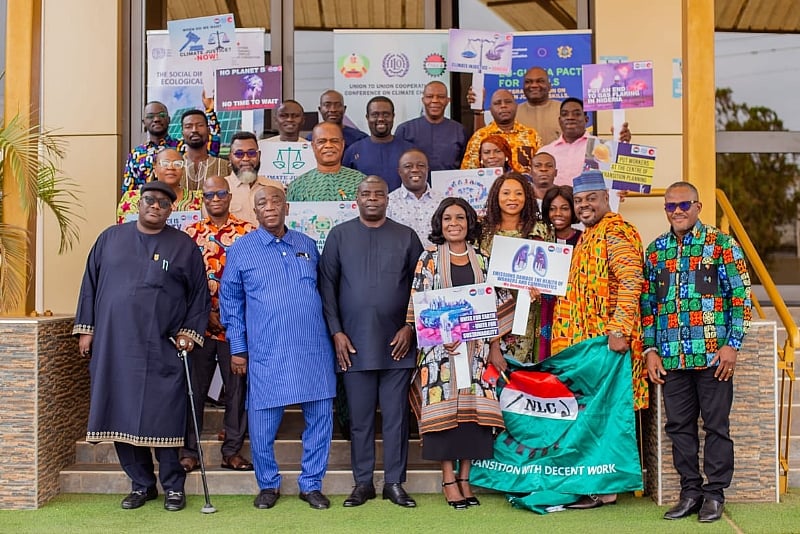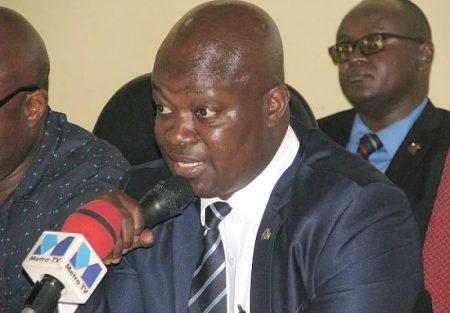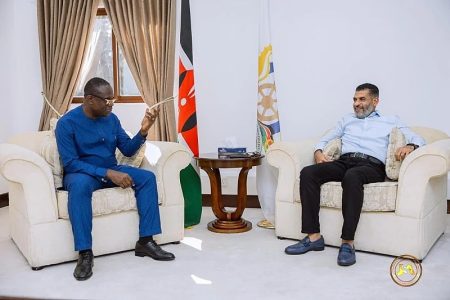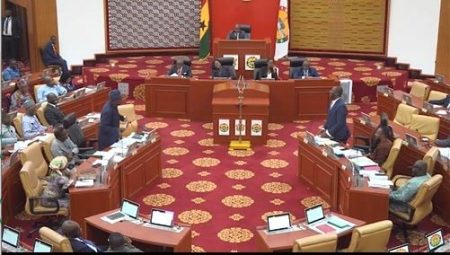The escalating climate crisis and the global shift towards green energy necessitate a comprehensive approach that safeguards the livelihoods of workers while addressing environmental concerns. In a pivotal move towards this goal, the Nigeria Labour Congress (NLC) and the Ghana Trades Union Congress (TUC) joined forces in Accra, Ghana, for a three-day workshop aimed at fostering collaboration and ensuring a just transition for workers in both nations. This collaborative initiative, supported by the International Labour Organization (ILO), underscores the importance of union involvement in shaping climate policies and ensuring that the transition to a sustainable future does not exacerbate existing inequalities. The workshop served as a platform for knowledge sharing, technical discussions on the future of work, and the development of strategies for climate-resilient economies through social dialogue and policy engagement.
The workshop commenced with a stark reminder of the urgency of the climate crisis and its disproportionate impact on the working class. Mr. Joshua Ansah, Secretary General of Ghana’s TUC, emphasized that climate change is no longer a distant threat but a present reality impacting livelihoods across Africa. He highlighted the interconnectedness of climate justice and economic justice, stressing the importance of the Just Transition principle, which ensures that climate policies do not compromise workers’ rights or deepen existing inequalities. Mr. Ansah argued for the integral role of unions in policymaking, emphasizing that their exclusion could lead to an unjust and ineffective transition to a green economy. He underscored the need for a deep understanding of the socio-economic drivers of change, advocating for workers’ active participation in shaping a just and meaningful transition.
The ILO, represented by Ms. Inviolata Chinyangarara, Senior Specialist on Workers’ Activities, lauded the joint initiative as groundbreaking and highlighted the importance of solidarity among African labour unions in influencing climate agendas at both national and international levels. The ILO’s technical sessions focused on its policies concerning just transition and climate change, emphasizing the role of social dialogue in empowering unions to advocate effectively for workers during national climate policy discussions. Ms. Chinyangarara cautioned against the potential negative consequences of a poorly managed transition, including job losses, increased poverty, and exacerbated inequalities, particularly in regions like West Africa with a high prevalence of informal employment. She stressed the need for workers to be at the forefront of shaping the climate discourse, given its profound impact on their working conditions, international labour standards, and basic living conditions.
From the employer’s perspective, Mr. Alex Frimpong, Chief Executive of the Ghana Employers Association, acknowledged the dual nature of the energy transition. While recognizing the opportunities presented by a green economy, he cautioned against the potential social consequences of a mismanaged shift. He emphasized the risk of exacerbating existing inequalities and undermining decent work if the transition is not handled carefully. However, he also expressed optimism about the potential for innovation, green enterprise growth, and the development of resilient labour markets capable of thriving in a new climate reality, provided the transition is managed effectively.
Representing the Nigeria Labour Congress, Mr. Marwan Mustapha Adamu, Chairman of the International Committee, emphasized the tangible impact of climate change on workers and their communities. He highlighted the vulnerability of workers and their families to the direct consequences of climate change, reinforcing the need for participatory models of climate adaptation and energy reform that include workers, unions, and employers. He stressed the importance of transnational collaboration, exemplified by the NLC-TUC exchange, in building robust and evidence-based responses to the climate crisis. This collaborative approach is crucial for developing effective strategies and ensuring that the transition to a sustainable future is inclusive and equitable.
The workshop served as a critical stepping stone towards developing comprehensive action plans that will inform national policy engagement and advocacy in both Nigeria and Ghana. The overarching goal is to ensure that Africa’s transition to climate resilience and sustainable energy prioritizes workers’ rights, decent employment, and social justice. The collaboration between the NLC and TUC, supported by the ILO and engaging employers, represents a significant step towards a just and equitable transition to a sustainable future, demonstrating the crucial role of social dialogue and worker representation in shaping climate policies and ensuring that no one is left behind in the face of this global challenge. The outcomes of this workshop will serve as a roadmap for future actions, guiding policy development and advocacy efforts in both nations, with the ultimate aim of achieving a sustainable and inclusive future for all.



